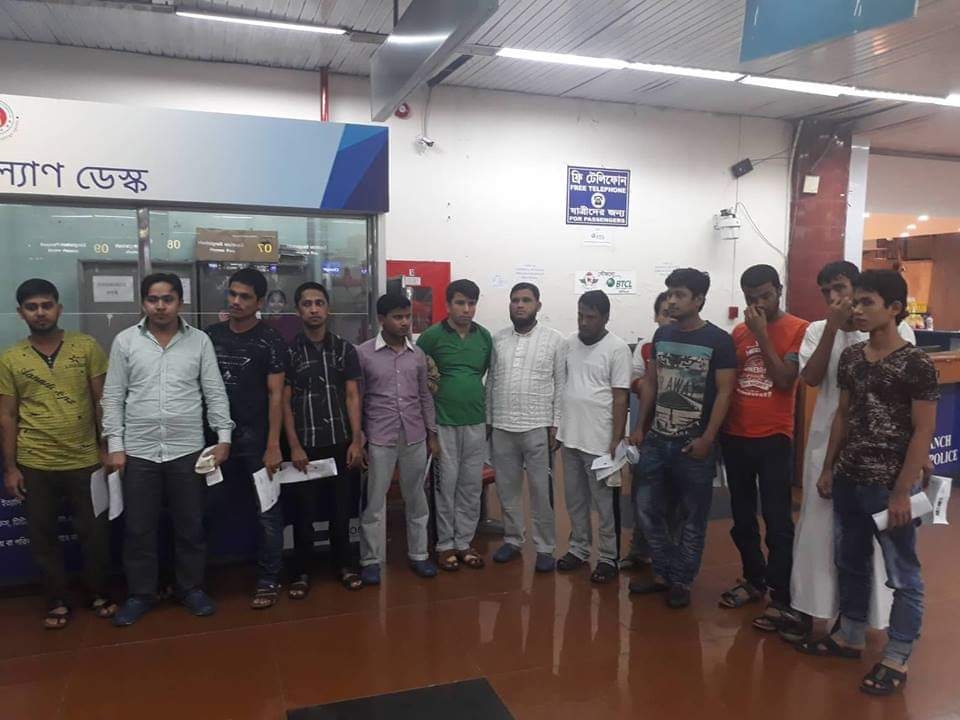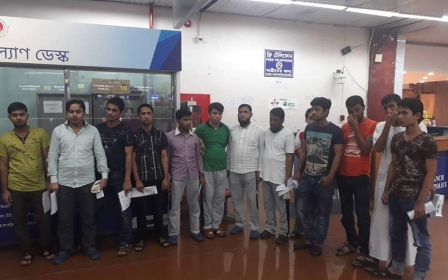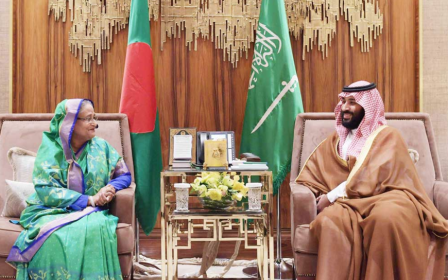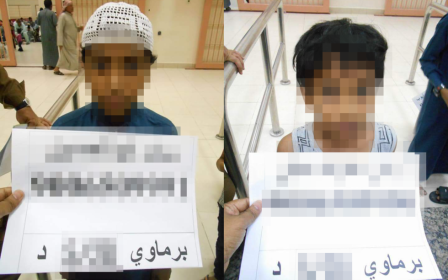Amnesty criticises Bangladesh for jailing Rohingya deported from Saudi Arabia

Human right groups condemned Bangladesh's decision to jail more than a dozen stateless Rohingya deported from Saudi Arabia for using fake passports to get to the Gulf kingdom.
The 13 Rohingya men had spent years in Saudi detention and were forcibly removed to Bangladesh on Monday evening by Saudi Arabia, despite coming from Myanmar.
Riyadh deported the stateless Rohingya from a Saudi detention centre after detaining them for carrying no valid documents. The stateless Rohingya hoped the Saudi authorities would permit them to stay in the country but instead held them indefinitely in the Shumaisi detention centre in Saudi Arabia.
"It is deeply distressing to learn about the imprisonment of the Rohingya people in Bangladesh"
- Saad Hammadi, Amnesty International
Saad Hammadi, Amnesty International's South Asia campaigner, condemned Bangladesh's move and described its decision to jail the stateless Rohingya as "deeply distressing".
"It is deeply distressing to learn about the imprisonment of the Rohingya people in Bangladesh after they languished in detention facilities for years in Saudi Arabia," Hammadi told Middle East Eye.
"At least 70 Rohingya people have been pushed into Bangladesh by Saudi Arabia and India recently. Bangladesh and other members of the international community must treat the Rohingya with more compassion than pushing the responsibility on to one another."
Local media outlets reported on Thursday that Dhaka Metropolitan Magistrate Dhiman Chandra Mondal ordered the stateless Rohingya on Wednesday to be jailed until their investigation was over.
Court officials told the Daily Star newspaper in Bangladesh that the stateless Rohingya, who confessed to Bangladeshi immigration police that they went to Saudi Arabia on passports obtained via forged documents, would be taken to the Dhaka Central jail.
Nay San Lwin, a coordinator for the Free Rohingya coalition, urged Bangladesh to release them on humanitarian grounds and to consider sending the stateless Rohingya to the refugee camps in Cox's Bazar, where they can be reunited with their families.
"We appeal [to the] Bangladesh government to release them on humanitarian grounds so they can be reunited with their families in the refugee camps," Lwin told MEE.
"Bangladesh shouldn't detain them as they have already been detained for more than five years for holding different passports."
The UN Refugee Agency (UNHCR) told MEE on Thursday it was aware of Rohingya from Saudi Arabia were being jailed in Bangladesh.
"UNHCR is aware of reports of detention in the Kingdom of Saudi Arabia and reported deportation to Bangladesh of Rohingya from Myanmar," Andrej Mahecic, UNHCR's global spokesperson told MEE.
"UNHCR is seeking clarification with the relevant authorities on the identity and circumstances of the reported deportation of Rohingya."
Rohingya in Saudi
Local reports and images sent to MEE confirmed that the detained Rohingya were removed to Bangladesh on emergency Bangladeshi travel documents, not passports, issued by Bangladesh's embassy in Saudi Arabia.
Videos, images and voice notes sent to MEE on Sunday showed scores of Rohingya inside the Shumaisi detention centre in Saudi Arabia handcuffed and prepared for deportation to Bangladesh, despite coming from Myanmar.
In November, Middle East Eye reported that Rohingya detainees inside the Shumaisi detention centre were being prepared for deportation just days after Bangladeshi Prime Minister Sheikh Hasina visited Saudi Arabia and met Saudi Crown Prince Mohammed bin Salman.
Detainees told MEE they were "punched" in the chest by Saudi immigration police and forced to sign documents testifying to their "full mental health" on Saudi Interior Ministry forms before their deportation to Bangladesh.
Scores of Rohingya had resorted to using smugglers to obtain passports, often via forged documents, following Myanmar's ban on Rohingya obtaining Burmese passports.
Many Rohingya locked up in the Shumaisi detention centre came to Saudi Arabia on Bangladeshi passports, while others entered on passports from different South Asian countries, including Bhutan, India, Pakistan and Nepal.
Stay informed with MEE's newsletters
Sign up to get the latest alerts, insights and analysis, starting with Turkey Unpacked
Middle East Eye delivers independent and unrivalled coverage and analysis of the Middle East, North Africa and beyond. To learn more about republishing this content and the associated fees, please fill out this form. More about MEE can be found here.




